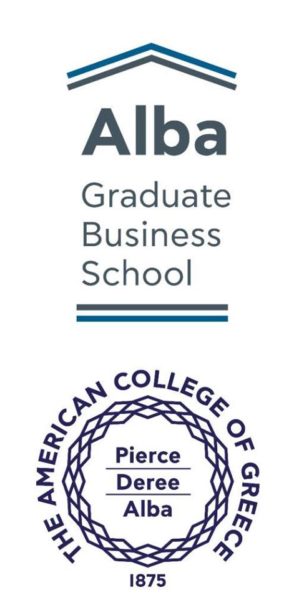When asked about Germany, people might think about the famous bratwurst, Berlin techno, beer and automobiles. However, many also think about Frankfurt and its financial institutions. Indeed, Germany is known for its economic productivity and its financial centre, Frankfurt. Would you like to know if it provides an education to match its fame?
In this article, EDUopinions tells you more about finance degrees in Germany and job prospects upon completion of such studies. We compiled a list of excellent degrees to introduce you to studying finance in this country.
Is Germany a good place to study finance?
Germany has been praised for its academic excellence. German finance degrees certainly follow such a quality standard. Higher education institutions often foster students to take advantage of the environment offered by the country. Indeed, Germany is one of the strongest economies in the world and is a financial hub in Europe. Furthermore, a strong incentive to study there is that most universities are public and free for EU students (though small enrollment costs are usually incurred). Note, however, that business schools tend to be private, hence requiring tuitions fees. But Germany has several scholarships available to provide access to education to everyone. Finally, most degrees can be followed in German or English.
Is it easy to get a job afterwards?
Finance is the most attractive market for business economists in general. Nevertheless, Germany has the 4th largest GDP as reported by the World Bank and therefore offers numerous job opportunities. A lot of new small businesses are created each year and need financial experts to grow. There are a few big companies, numerous banks (especially in Frankfurt), but also countless middle-size businesses that make up the largest portion of employers. The latter tend to be located in small towns, even though they often are global leaders in their field. So they might require you to relocate if you studied in a big city. What is great in Germany is that you automatically become a permanent employee after two years or you receive a company pension. Note that, as a non-EU citizen, you need to apply for a work permit.
What is the cost of living for a student in Germany?
As a student, you should budget between EUR 800 and EUR 900 per month to cover rent, charges, food, transportation and leisure. Just like in any other country, living in the centre of big cities will usually be more expensive. However, most cities offer advantageous students rates for museums, theatres, restaurants, gyms, and other leisure activities. You can easily find a part-time job next to your studies. As an EU citizen, you are allowed to work up to 20 hours per week, and 120 days (or 240 half-days) as a non-EU student, without having to pay taxes. As Germany shares its border with nine other countries, you might be tempted to travel and should therefore plan a bigger budget depending on the cost of such travels.
Best Masters in Finance in Germany
MSc in Global Finance at CBS International Business School

The MSC in Global Finance at CBS International Business School, in Cologne, is a 120 ECTS programme. It offers a lot of small courses (3 ECTS) that allow you to cover a lot of different material with specific assessments. It also includes courses to train your empirical research skills. Each semester comprises of a mixture of global business courses, programme-specific courses and interdisciplinary courses. In other words, you benefit from studying with peers in other sections and broaden your business horizons. Lastly, this MSC includes an internship and an optional semester abroad.
International Finance and Accounting, M.A. at IUBH University of Applied Sciences

The International Finance and Accounting MA can be completed at both locations of the IUBH University of Applied Sciences, in Berlin and Bad Honnef. It is a 60 credits programme with intakes in October and April. This master of arts focuses on the analysis of international capital markets and learning how to manage portfolios. It is catered towards students who are interested in pursuing an international career in finance and accounting. IUBH claims that 87% of their graduates find a job within three months after their graduation.
Finance M.Sc. at Frankfurt School of Finance & Management

The Finance MSC at the Frankfurt School of Finance & Management is a special programme because it is not taught like usual masters. Instead, it is based on the teaching dynamics of an MBA. Indeed, it aims to connect students with future employers. By following this degree, you achieve the following main learning goals:
- Expert Knowledge and Understanding in Finance
- Financial Product Development
- Effective Communication and Cooperation
- Professional and Responsible Behaviour
You are also asked to choose one of four concentrations: Capital Markets, Risk Management, Corporate Finance, or Financial Advisory. Generally, this Finance MSC will provide you with a great network of alumni and corporate representatives that can get you ready for a valuable career.
Finance, M.Sc. at WHU – Otto Beisheim School of Management

The WHU – Otto Beisheim School of Management in Vallendar and Düsseldorf offers a small and very diverse MSC in Finance. Indeed, 45 nationalities were recently recorded in a class of 47 students. The MSC in Finance can be followed as a 90 or 120 ECTS programme. The former version includes a capstone module, which is a week during which you and your classmates undergo a one-week-long business simulation. In the latter version of the programme, you spend your third semester following MBA courses in one of the 200 partner universities of WHU. Independently from the length of the programme you choose, after two semesters you will be given the possibility to do an internship.
International Dual Degree – International Finance and Investments, M.B.A. at Hochschule Bremen International Graduate Center

The Hochschule Bremen International Graduate Center offers a series of International Dual Degrees. The one in International Finance and Investment starts in Bremen, where you complete the foundation courses. Then, you are sent to North Carolina, in the US, at the Cameron School of Business, part of the University of North Carolina Wilmington (UNCW). There, you will be granted access to a series of resources, including the Bloomberg Computer Software. The entire programme focuses on the global economy and provides you with two degrees in one year. Note that you must have at least one year of professional experience to be accepted in the programme.
Finance, M.Sc. at International School of Management (ISM)

The Finance MSC offered by the International School of Management is ideal for students who have not extensively focused on business during their bachelor. Academically, the programme only requires you to have accumulated 30 ECTS in business of other economics-related subjects. The classes offered focus mostly on taxation, financial law, accounting and financial management. They can be followed in Dortmund, Frankfurt, Munich or Berlin.
The programme includes a mandatory semester abroad, a 12-weeks internship, and a thesis. Additionally, you are given the opportunity to make it evolve into a double degree with one of the 190 partner universities of ISM.
Finance, M.Sc. at EBS University of Business and Law

The MSC in Finance at EBS Business School is great in that it does not have an application deadline. It enables you to start the programme in the fall or spring. Additionally, you receive individual support and coaching throughout the entire degree. As you advance in the programme, you will be asked to choose a specialisation between Corporate Finance, Financial Modelling, and Regulation, Risk and Resilience. Graduates from this programme tend to receive an above-average entry salary.
Conclusion about the Best Masters in Finance in Germany
As you can see, most finance degrees in Germany offer opportunities to study abroad, intern, and network. If you are more interested in management, you will find our article on The Best Masters in Management in Germany interesting. Additionally, if you are a fan of math and statistics you will certainly enjoy reading about The Best Masters in Quantitative Finance.
Recent Posts

If you're thinking of studying a technical subject like engineering at university, it's crucial that you choose a university that has a rigorous ...

Although it's possible to sail through university without giving a thought to what you're going to do afterwards - concentrating only on enjoying ...

Ever thought about studying in Greece? Between the sunny weather, incredible history, and breathtaking coastline, you could also get a top business ...

